Graham Reid | | 3 min read

The plaque
at the reception of the Clachaig Inn at Glencoe in the Scottish
Highlands reads: “No hawkers or Campbells”.
It is
amusing -- I’m sure Naomi would be welcome should she show up in
this beautiful but largely unpopulated region -- but it also reminds
you of a fault-line of deep feeling that runs through Scottish
history.
It was here
in these once remote valleys -- today just a few hours drive north
from Glasgow -- that in the early hours of 13 February 1692 the
massacre of the Clan MacDonald was carried out by troopers of the
London-based government, many of them from Clan Campbell.
The troops
had been sent to the region after the Battle of Killicrankie, the
first Jacobite rebellion in which the English were defeated by
Highlanders whose cause was the restoration of James VII to the
throne in place of King William of Orange.
The soldiers
had been staying in MacDonald homes but their secret instructions
were brutal: “by fire and sword, and all manner of hostility to
burn [Clan MacDonald] houses, seise or destroy their goods or
cattell, plenishing or cloathes and to cut off the men”.
By the time
the attacks began, at 5am on a bitterly cold morning, there had been
even more clear orders: “putt all to the sword under seventy . . .
You are to secure all the avenues that no man escape”.
Surprisingly
many did manage to flee -- certainly some soldiers tipped off their
hosts or couldn’t bring themselves to carry out the command -- and
history records 38 murders. Some who fled into the rolling valleys
that they knew so well died of exposure.
Today the
pass at Glencoe beside Loch Leven is a more benign place -- walking
and cycling trails, fishing, mountain climbing, boat trips on the
loch, Dragon’s Tooth Golf Course at Ballachulish -- but when the
mists roll in over the mountains there is a chill in the air which
goes straight to the soul.
It was on
one such afternoon we pulled in to the Clachaig Inn, the fading light
softening the dramatic scenery like a veil of fine gauze. The sky
glowered a blue-black and rain sent white torrents of waterfalls down
the green and black hills. This truly felt like “the glen of
weeping” as the name says.
Dorothy
Wordsworth was lost when she tried to write about this region in her
1803 Journal:
“I cannot attempt to describe the mountains. I can only say that
[they] were the grandest I had ever seen.”
Poets and
painters as much as outdoor types are drawn to Glencoe, many staying
the village of that name. But the Clachaig Inn, tucked in the shadow
of mountains at the heart of the Pass, enjoys a reputation for hearty
food and a good welcome -- unless you happen to be a Campbell,
perhaps.
There
has been an inn on this site since the 19th
century and in recent times it has been a regular winner in awards
given by the Campaign for Real Ale. It has voted the Clachaig the
best pub in Scotland and the Best Real Ale Pub in Britain.
It was
certainly easy to get a drink because, although it seems small, the
Clachaig has three quite distinct bar areas (the largest for those
hearty souls in hiking boots, the smallest a cute snug). The food was
everything we had been told, the kinds of meals you need after a day
or two in the mountains.
But even if
you are just passing through by car -- it makes a good loop between
Glasgow and Edinburgh if you have a day or two to spare -- this
region is breathtakingly beautiful.
The
character of the mountains changes as clouds pass overhead, and
walking just a minutes from the road you feel as if you are in a
remote and alien world shrouded in mystery and ancient legend.
The sound of
lone piper in a lay-by playing for passing tourists floats eerily in
the cold air, the clear water in the small streams is icy, the stones
shine black in the rain.
And high
above a lone falcon rides the wind.
For other travel stories by Graham Reid, see here for his two award-winning travel books.

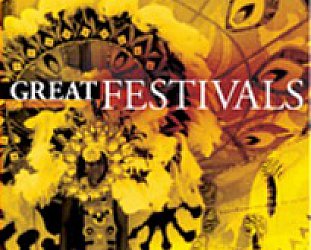
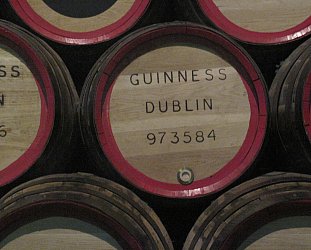
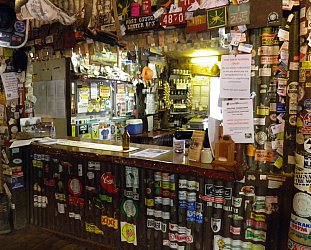
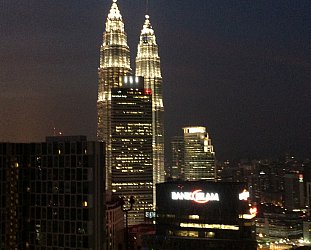
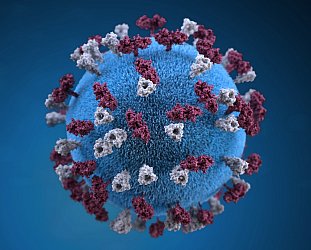
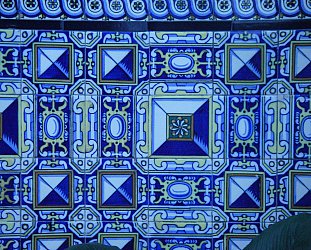
post a comment